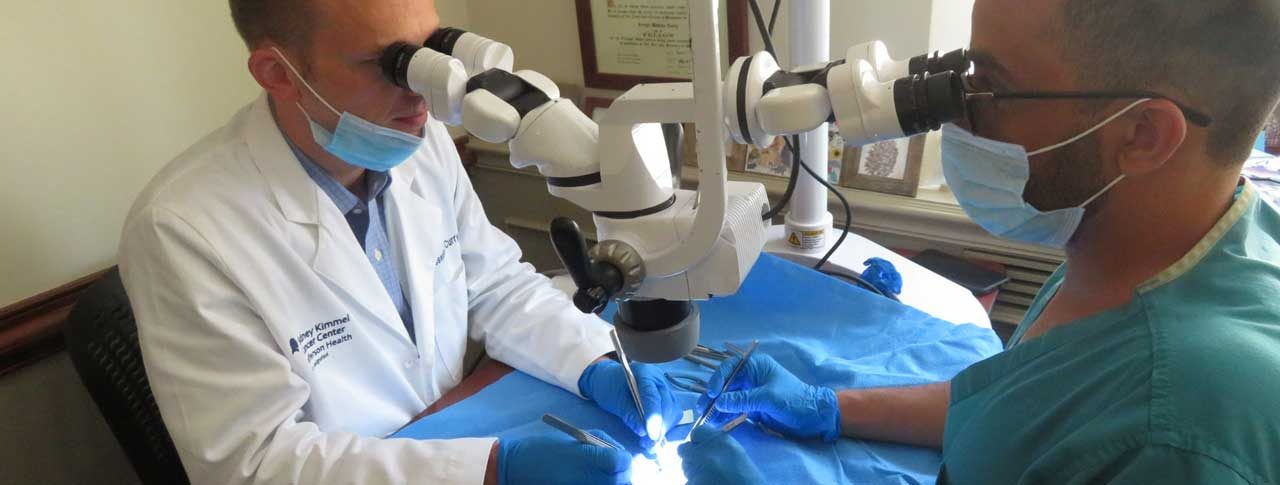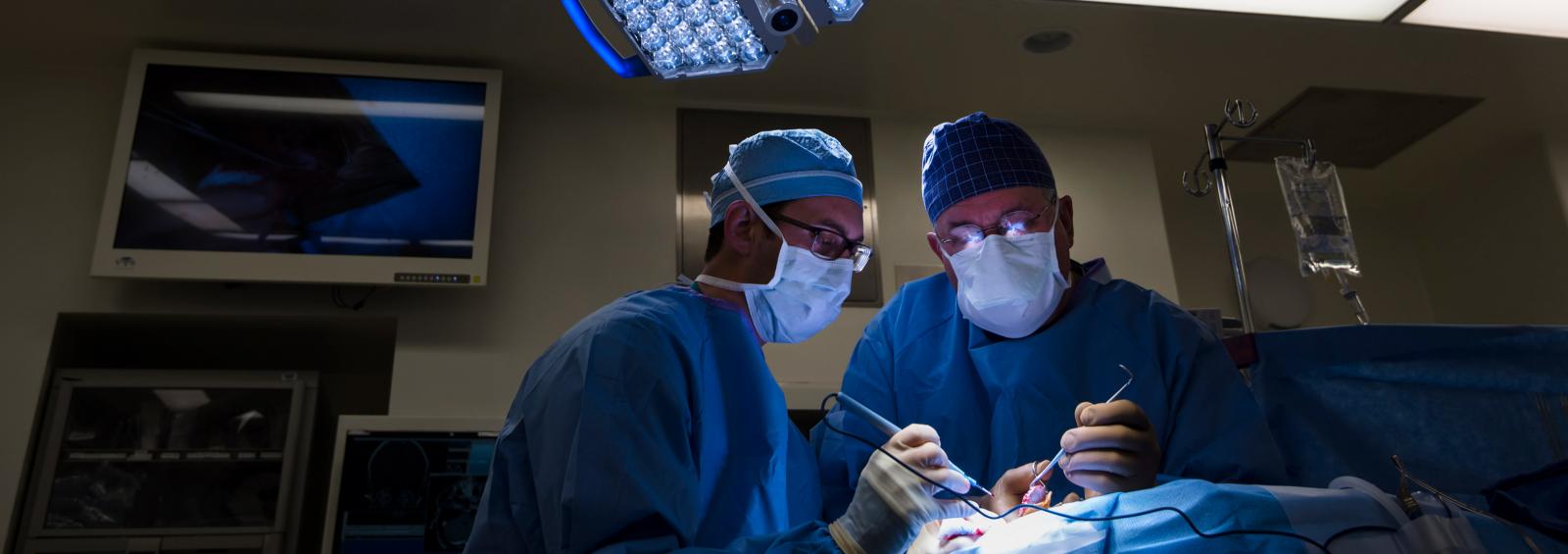When It's Time to See a Voice Specialist
When It's Time to See a Voice Specialist
Blog Article
Exploring the Field of Otolaryngology: What to Anticipate When You Seek Advice From an ENT
Otolaryngology, frequently referred to as ENT, includes the diagnosis and therapy of nose, throat, and ear problems. For those experiencing associated problems, consulting an ENT professional can offer clearness and alleviation. Recognizing what to expect throughout such examinations is necessary for effective communication and care. This summary will describe key facets of the ENT experience, including common reasons for visits and the processes involved in medical diagnosis and treatment.

Recognizing Otolaryngology: A Summary
Otolaryngology, commonly referred to as ENT (Throat, nose, and ear) medication, is a customized branch of medication that concentrates on the medical diagnosis and treatment of conditions influencing these crucial areas of the human body. This area incorporates a large range of conditions, consisting of those pertaining to hearing, balance, respiratory system function, and speech. Otolaryngologists are trained to manage both medical and medical treatments, making use of innovative methods and innovations. Their expertise expands beyond standard disorders, dealing with concerns such as allergic reactions, sinus infections, and hearing loss. Additionally, they play a critical function in the administration of head and neck cancers cells, giving detailed treatment customized to individual patient demands. On the whole, otolaryngology remains necessary for maintaining health and lifestyle in afflicted individuals.
Common Factors to See an ENT Expert
Several individuals look for the proficiency of an ENT specialist for a selection of reasons, mirroring the diverse nature of conditions that impact the ear, throat, and nose. Usual problems include chronic sinus problems, which frequently leads to consistent nasal congestion and face discomfort. Allergies and their linked signs and symptoms, such as sneezing and itching, also prompt brows through to these experts (Sinus). Hearing loss, whether steady or unexpected, is another substantial factor for examination. Furthermore, people may look for assessment for throat disorders, consisting of relentless hoarseness or swallowing troubles. Rest apnea, identified by cut off breathing throughout rest, is regularly dealt with by ENT professionals too. Each of these problems highlights the significance of specialized care in managing complicated ENT-related health problems
Getting ready for Your ENT Consultation
When preparing for an ENT appointment, it is necessary to collect relevant info and think about any kind of details worries. Clients ought to put together an in-depth case history, including previous ear, nose, or throat concerns, surgical procedures, and current medications. Recording signs-- such as period, seriousness, and frequency-- can offer important understandings for the ENT professional. Furthermore, individuals should prepare a listing of concerns they want to ask, making sure that all concerns are resolved during the browse through. Bringing along any kind of relevant medical records or examination outcomes can even more assist the ENT in understanding the person's problem. Finally, patients ought to confirm their appointment details, consisting of place, day, and time, to reduce any kind of final confusion. Correct prep work can improve the efficiency of the assessment and bring about better outcomes.
What to Anticipate During the Examination
As the consultation begins, the individual can expect to take part in a complete conversation with the ENT expert regarding their symptoms and clinical history. The expert will ask about the period, frequency, and intensity of signs such as hearing loss, nasal blockage, or sore throat. Additionally, the person's previous medical problems, drugs, and any type of relevant family history will be evaluated, aiding the specialist in creating a full understanding of the individual's health. The ENT might also inquire about way of living aspects, such as exposure to irritants or irritants. This open discussion establishes a structure for the assessment, ensuring that the individual's concerns are resolved and setting the stage for any type of essential examinations or referrals for treatment.
Analysis Tests and Treatments in Otolaryngology
A variety of analysis examinations and treatments are important in otolaryngology to properly assess and diagnose conditions influencing the ear, nose, and throat. Typical tests consist of audiometry, which gauges hearing feature, and tympanometry, evaluating middle ear stress. Nasal endoscopy allows visualization of the nasal passages and sinuses, while laryngoscopy checks out the throat and vocal cords. Imaging methods, such as CT scans and MRIs, offer thorough views of head and neck structures. Allergy testing might also be carried out to recognize triggers for sinus or respiratory system problems. These diagnostic devices make it possible for ENT specialists to develop a comprehensive understanding of people' conditions, ensuring tailored and efficient monitoring strategies. Correct medical diagnosis is vital for effective treatment results in otolaryngology.
Treatment Choices Supplied by ENT Specialists
ENT professionals supply a variety of treatment choices tailored to attend to particular problems impacting the ear, throat, and nose. These treatments vary from traditional approaches, such as medication and way of life adjustments, to even more intrusive procedures. Allergic reactions might be handled with antihistamines or immunotherapy, while persistent sinus problems might require nasal corticosteroids or sinus surgical procedure. For hearing loss, ENT specialists frequently recommend listening device or medical treatments like cochlear implants. In instances of throat disorders, alternatives can consist of speech therapy or procedures to eliminate blockages. Furthermore, they may give support for handling sleep apnea, including using CPAP tools or surgical treatments. Overall, the objective is to boost clients' lifestyle with personalized treatment and reliable treatment strategies.
When to Look For Follow-Up Care With an ENT
Identifying when to seek follow-up treatment with an ENT specialist is essential for handling recurring signs or problems connected to ear, throat, and nose problems. People ought to consider arranging a follow-up appointment if symptoms persist in spite of preliminary therapy, such as chronic ear discomfort, nasal congestion, or throat pain. Changes in hearing, balance concerns, or unusual nasal discharge may additionally warrant further analysis. Additionally, if a client experiences adverse effects from prescribed drugs or has actually undertaken an operation, follow-up treatment is very important to check healing and address any issues. Timely appointments can guarantee efficient monitoring of problems, prevent potential difficulties, and supply satisfaction pertaining to one's health and wellness. Seeking follow-up care advertises positive health and wellness management in otolaryngology.
Often Asked Questions

What Qualifications Should I Look for in an ENT Professional?
When seeking an ENT expert, one need to try to find board accreditation, appropriate experience, and strong patient reviews. Furthermore, efficient interaction abilities and a compassionate technique can considerably enhance the total therapy experience.
Exactly how Do I Choose the Right ENT for My Demands?
Choosing the ideal ENT expert involves reviewing their certifications, experience, and client testimonials (Voice). It is vital to ponder their interaction style and strategy to treatment, ensuring they align with the individual's specific health and wellness requirements and preferences
Exist Any Type Of Threats Connected With ENT Procedures?
The threats connected with ENT treatments might consist of infection, blood loss, anesthesia difficulties, and possible damage to bordering structures. Individuals should go over these threats with their medical professional to comprehend individual issues and assurance educated decisions.
Exactly How Can I Take Care Of Anxiety Prior To My ENT Visit?
To handle stress and anxiety before a visit, people can practice deep breathing workouts, picture favorable outcomes, prepare inquiries beforehand, and seek assistance from pals or family members, promoting a feeling of confidence and peace.
What Should I Do if I Experience Negative Effects From Therapy?
If side website results from treatment occur, the person needs to immediately report them to their healthcare supplier. Modifications to treatment or additional treatments might be required to guarantee security and effectiveness in managing their problem - ENT Doctor. As the consultation begins, the patient can expect to involve in an extensive discussion with the ENT specialist regarding their symptoms and medical background. These diagnostic devices allow ENT experts to develop a comprehensive understanding of patients' problems, making certain tailored and efficient monitoring strategies. ENT professionals use a selection of therapy alternatives customized to deal with certain conditions influencing the ear, nose, and throat. When looking for an ENT specialist, one need to look for board certification, pertinent experience, and strong individual testimonials. Picking the appropriate ENT specialist includes examining their credentials, experience, and person reviews
Report this page